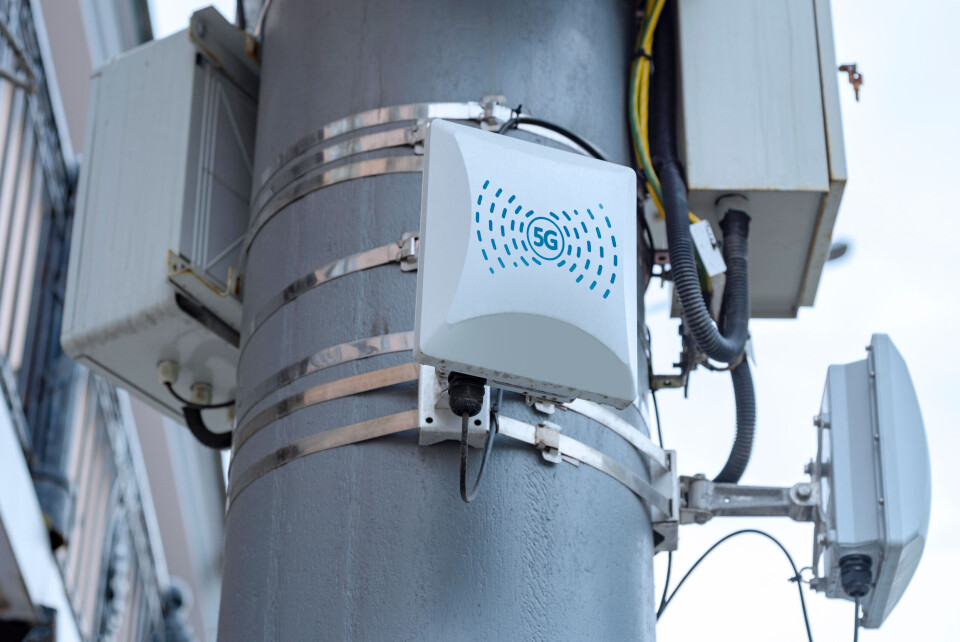-
Two further skier deaths confirmed after weekend avalanches in French Alps
Experienced ski tourers were found when avalanche transceivers emitted warning
-
BBC says no plans for content subscription service in France
Broadcaster’s ‘Sounds’ app has been unavailable since July 2025
-
France heat: 130 records set on February 25 - will it continue?
Seasonal records smashed as far north as Normandy and in the Alps
5G in France: Mobile operators defend slowdown of rural area rollout
The rollout of the super-fast technology will be delayed in areas with ‘lower population density’ due to the price of energy, the French telecom federation has said

Mobile operators in France have defended the slowing down of the 5G coverage rollout in rural areas of the country, blaming the rising cost of energy.
La Fédération française des télécoms (FFF), which represents three of the four major operators in France (Bouygues, Orange, and SFR, but not Free), said on its website: “[Due to the soaring price of energy] the rhythm of the deployment of 5G in less densely-populated areas could be reconsidered”.
It confirmed the slowdown to the finance ministry, the communications authority l’Autorité de régulation des communications électroniques, des postes et de la distribution de la presse (Arcep) and to MPs.
It said: “The changing of 5G deployment obligations [...] in rural areas would result in a short- and medium-term energy gain.” The gain would be estimated at 1.4% in 2023.
In contrast, fulfilling other FFF 5G requirements, including "deployment on motorways" should result in a total gain of 5% next year.
FFF told Merci Pour l’Info: "As part of the government's plan for digital simplicity, operators have identified ways to reduce network power consumption. Operators will work to ensure that these means available to the government will be coordinated across the country.
“Operators ask above all that network power supply is guaranteed this winter,” it said.
FFF had originally been bound by specifications published in 2019 by Arcep. These stated that operators were contracted to deploy 3,000 5G antennas in 2022, 8,000 in 2024, and 10,000 in 2025. Of these, 20-25% were intended for rural areas.
Operators are currently ahead of schedule, but the antennas have mainly been installed in major cities only so far.
Read more: Update: Where is 5G in France now and how is the rollout progressing?
5G controversial in France
5G has been controversial in France since before its rollout began in November 2020. Some even repeated the discredited theory that the network was responsible for the Covid pandemic, and masts were burned as a result.
5G is technically supposed to reach rural France, but in some areas, even 3G and 4G are not yet reliable.
As early as July 2019, Pierre-Marie Georges, spokesman for the association of rural mayors in France, said that it was a “step forward that rural areas” were included in the 5G plan. But even then, he said that the association feared that promises for rural areas would not be kept.
He said: “Operators have still not fulfilled their obligation to provide 4G in all rural areas, despite pressure from the government. We’ve been talking about no-signal ‘zone blanches’ for 20 years and that issue is still not resolved.
“The promise of 25% rural coverage is not enough as a third of the country is rural with a population of 20 million. We remain vigilant. New technologies should be for everyone.”
Read also: Make sense of France’s rollout of new 5G mobile phone technology
The ‘revolution’ of 5G
The difference between 4G and 5G is stark, with the newer technology said to have vast potential for industry, including the medical and healthcare fields, self-driving cars, and farming.
To compare: a film that would take 1 hour 40 minutes to download with 4G, would take 20 minutes on 5G.
5G operates via high frequencies and allows more devices to access the internet simultaneously at faster speeds. However, the higher frequency waves travel shorter distances, and do not penetrate buildings easily (for coverage indoors). This means that a greater number of smaller masts are needed closer to people’s homes.
Main masts will only send out signals when they are called for. This is in contrast to current masts, which constantly broadcast waves.
Some have heralded it a ‘mobile revolution’, but others fear that it presents serious risks to health and the environment. In 2022, French health authority Anses said that 5G does not pose any risk to health, after an initial report said the same in April 2021.
A further study into the issue by several national agencies, including frequency watchdog l’Agence Nationale des Fréquences (ANFR) found that the levels recorded for 5G were 50 to 1,000 times lower than the limits currently recommended to protect human health.
In 2020, President Emmanuel Macron controversially said that people who called for a moratorium on the technology wanted to “go back to the age of oil lamps”.
Related articles
Orange given go-ahead to decommission copper telephone lines in France
Mobile phone bills in France rise by up to 120% due to hidden ‘gifts’
























